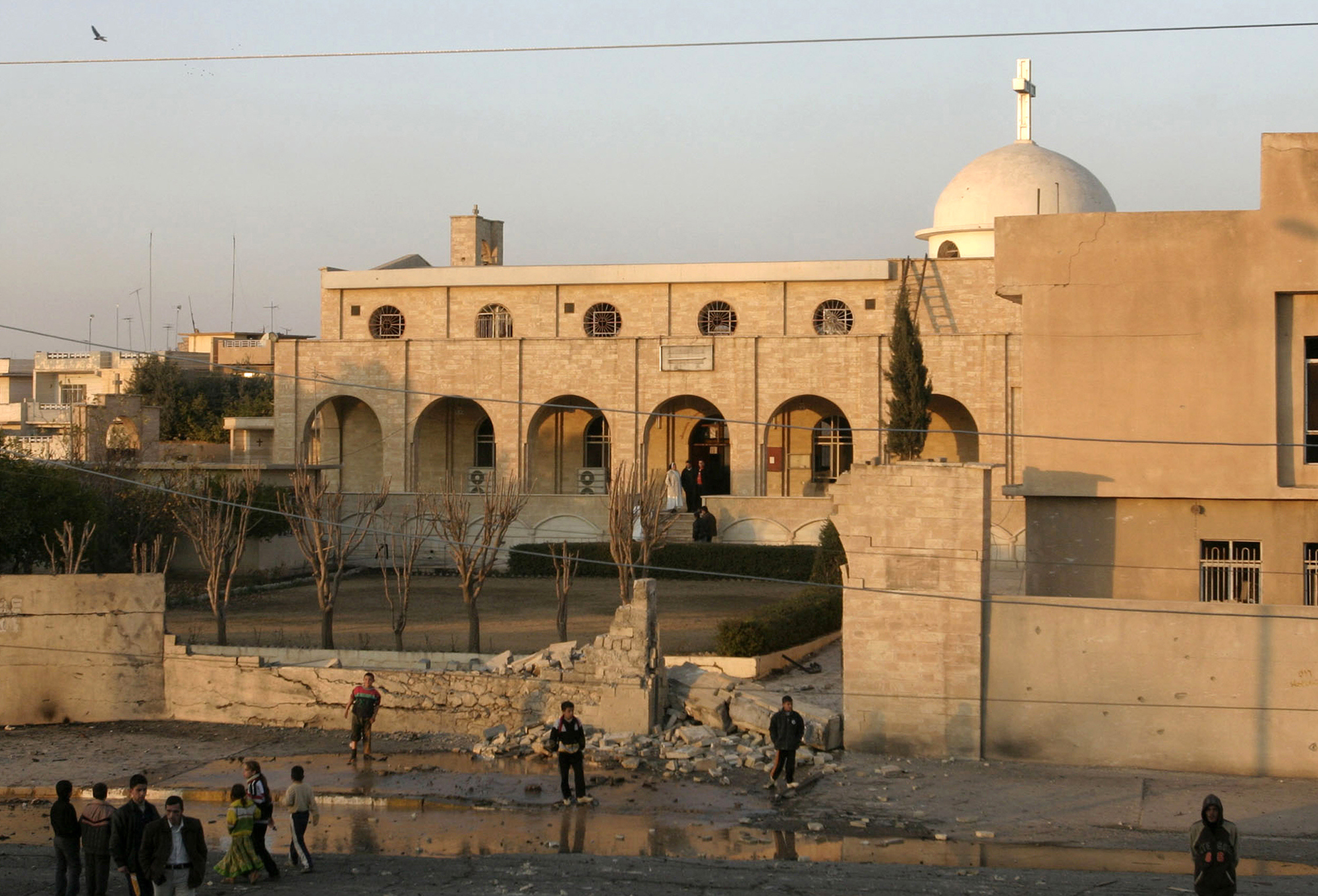
ISTANBUL (BP)–Several Iraqi Christian sites were damaged in coordinated bomb blasts Sunday morning, Jan. 6, the day many Iraqi Christians celebrated either Epiphany or Christmas Eve according to some Eastern liturgical calendars. At least six people were injured, one seriously.
“Three churches in Baghdad and three in Mosul [were hit], but there were no fatalities,” Chaldean Auxiliary Bishop Andreas Abouna told Compass Direct News from Baghdad. The blasts occurred within five minutes of each other at approximately 11 a.m., Abouna said.
Chaldeans, an eastern-rite church in communion with Rome, make up the majority of Iraq’s Christians.
Father Bashar Warda of St. Peter’s Seminary told Compass, “There has been much violence against the Sunni and Shiites, while the Christians have been left alone, at least for [the past few months].” The blasts, he said, let Chaldeans and Iraq’s other indigenous churches know that “whatever [violence] is happening around the country, you [Christians] will be part of it also.”
In Mosul, at least four people were wounded, one of them seriously, when a parked car exploded outside an Ancient Assyrian Church of the East parish in the al-Nur district, Father Emmanuel Youkhana of Christian Aid Group Nohadra Iraq reported. Arriving at their Eastern calendar Christmas Eve day service, approaching churchgoers had noticed an unfamiliar car parked outside their building, Youkhana said.
“They looked at the car and even tried to see what was under it,” Youkhana told Compass. The vehicle exploded after the worshippers entered the church, causing no fatalities.
In Baghdad, a sound bomb damaged the rear entrance of St. George Chaldean Church, while a mortar round hit a Greek-Melkite parish, injuring two worshippers, according to Iraqi Christian website Ankawa.com. According to Warda, a bomb blast simultaneously hit a Chaldean convent in Baghdad’s Zaafaraniya quarter.
In Mosul, the St. Paul Chaldean church as well as the House of the Holy Spirit, a Chaldean convent in New Mosul, were hit by blasts at about the same time, Warda said by telephone from Erbil. Attackers also targeted a Dominican convent in Mosul, the biblical city of Nineveh that traditionally has been home to Iraq’s indigenous Christian minority.
According to Ankawa.com, security forces in Baghdad provided heavy security for local churches following the attacks.
Warda said it was fortunate that very little was taking place inside the churches at the time of the blasts. He said Chaldean families often baptize their children on the Feast of the Epiphany, which celebrates the incarnation of Jesus, while some churches focus the event on His baptism in the Jordan River.
The blasts brought an end to a fragile peace that Iraq’s Christian minority had begun to enjoy in recent months.
“Things were at least getting calmer, at least for some of the pastoral activities that had been restarted already in Baghdad in several parishes,” Warda told Compass. “I think the attack of yesterday has blocked part of the whole process.”
Syrian Catholic Archbishop of Mosul Basile Georges Casmoussa registered his surprise over the explosions after having worked to improve relations with Muslims in recent months, Ankawa.com reported.
In a strongly worded statement, Chaldean Archbishop Faraj Rahoo called on the government to recognize that the bombings were part of a plan to drive Christians out of Iraq.
“We have been living in Iraq before Islam, but those strangers who came to the city are causing the kidnappings and bombings and trying to sow sedition in the hearts of Iraqis,” Rahoo was quoted by Ankawa.com as saying.
In the past year, Islamist groups have evicted Christians from entire Baghdad neighborhoods, threatening forced conversion or death if they do not pay jizya, an Islamic tax imposed on non-Muslims. In October, militants kidnapped two Syrian Catholic priests in Mosul, demanding a ransom for their release.
According to Ankawa.com, Rahoo called on violent insurgent groups to attack U.S. troops rather than Iraq’s indigenous Christians. The Christians have often complained that insurgents equate them with the U.S. military because of the perception that both groups are Christian.
With the vast majority of Iraq’s violence stemming from Sunni-Shiite fighting, it is unclear whether perceived association with the United States is the main cause of attacks against Iraqi Christians.
–30–
Compass Direct News, based in Santa Ana, Calif., provides reports on Christians worldwide who are persecuted for their faith. Used by permission.















